 2023.06.15
2023.06.15
Do you think that if you brush your teeth every day, you can keep your mouth clean and free of bacteria?
Some people say: Obviously I brush my teeth every day, why do I still have cavities?
Just because you brush your teeth every day doesn't mean you brush them clean!
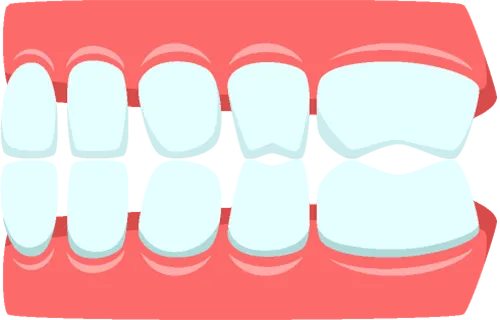
What is dental plaque?
Plaque (also known as tartar) is a biological film gradually deposited on the surface of teeth, consisting of food debris, shed oral epithelial cells, saliva and bacteria. The bacteria in plaque are mainly streptococci and anaerobic bacteria present in the normal oral cavity.
When the plaque accumulates to a certain thickness, the bacteria inside the plaque immediately next to the tooth surface start to switch to anaerobic respiration because they are isolated from the air. The acid produced by anaerobic respiration here cannot be washed away by saliva in time, so it will erode the mineral content of the enamel and further promote the formation of tooth decay. The plaque that accumulates at the roots of the teeth can also irritate the gums and lead to periodontal diseases such as periodontitis.
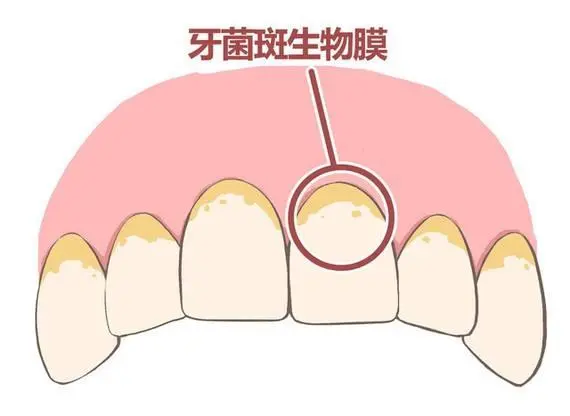
The dangers of plaque on teeth!
Hazard I: Caries
Caries, commonly known as worm tooth and tooth decay, is a bacterial disease that can lead to pulpitis and periapical inflammation, and can even cause inflammation of alveolar bone and jaw bone.
The "worm" in the so-called "worm tooth" actually refers to the bacteria in the plaque. Bacteria ingest the sugar in saliva, decompose the sugar to produce acid, if not treated in time, these acids will destroy the tooth, the lesion will continue to develop, forming cavities, and finally the crown will be completely destroyed and disappear, and the final result of its development is tooth loss.
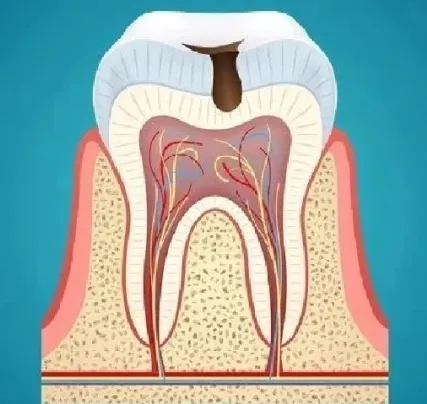
Hazard 2: Periodontal disease
Periodontal disease, also known as periodontitis, occurs when plaque is close to the gums, and the toxins and other harmful substances produced by the bacteria stimulate the gums and produce inflammation, and the gums and alveolar bone surrounding the teeth shrink due to inflammation, which may develop into irreversible periodontitis and gradually lose their fixed support role for the teeth, resulting in the teeth gradually loosening.
Early symptoms of periodontal disease is not easy to attract attention, resulting in long-term chronic infection of periodontal tissues, inflammation recurring, to the patient's medical condition has been quite serious, not only damage the function of the oral chewing system, but also seriously affect the health of the whole body.
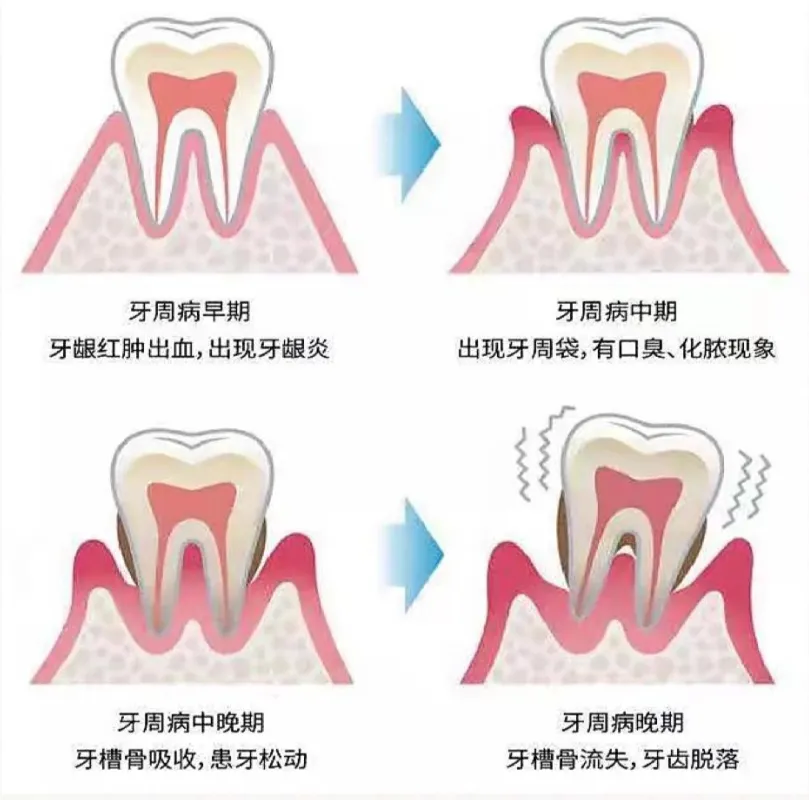
How to remove dental plaque effectively!
Method 1: Good oral hygiene every day
Insist on brushing your teeth every morning and evening, rinse your mouth after meals, it is best to brush your teeth three minutes after meals if possible, especially pay attention to the cleaning of the junction of gums and teeth and the adjacent areas between teeth. Toothbrushing is to insist on the pasteurization method, which is effective in cleaning plaque and does not hurt teeth and gums, usually have the habit of flossing, toothbrush should choose a soft and hard brush head, toothpaste should choose fluoride toothpaste.
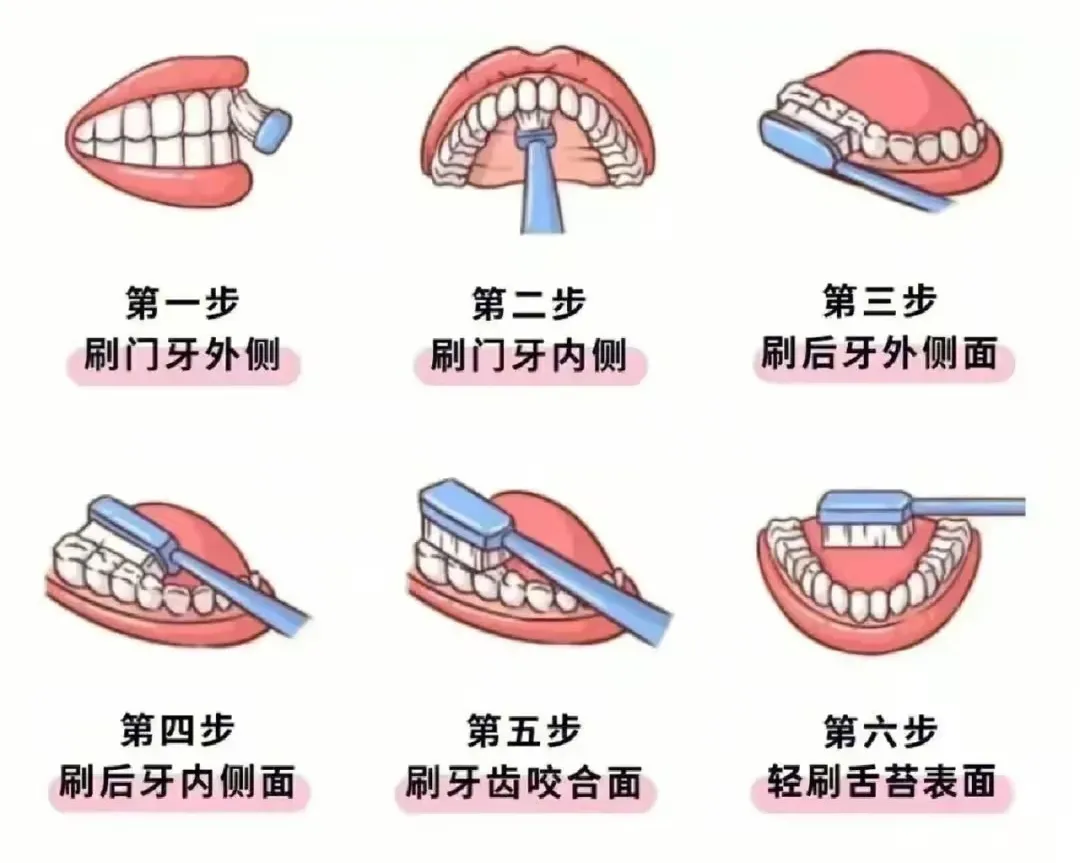
Method 2: Pay attention to diet
Many people love to eat sweets, but sweets can increase the appearance of plaque, so rinse your mouth promptly after each sweet meal. You can also eat more coarse fiber vegetables that can help clean and stimulate your teeth and gums to avoid plaque.

Method three: regular cleaning
Daily cleaning alone is not enough, some blind areas are easily neglected, and over time, plaque will accumulate more and more and finally mineralize into calculus, which cannot be removed by brushing. Dental scaling is an effective way to remove plaque and tartar. Scaling every six months to a year can prevent bleeding gums and loose teeth, effectively prevent periodontal disease, and help maintain oral health.
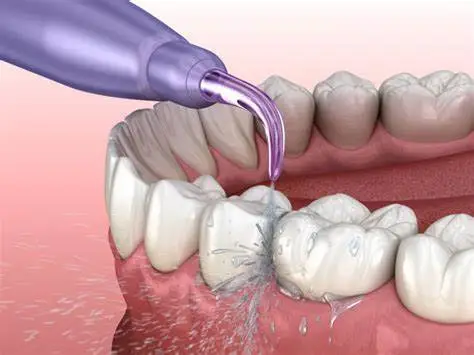
Plaque is a common type of bacteria in the mouth that forms a "greasy" covering on the surface of the teeth. If not cleaned in time, these bacteria can begin to invade the gums and lead to oral diseases.
It's time to clean plaque! Start with plaque to understand dental health!









